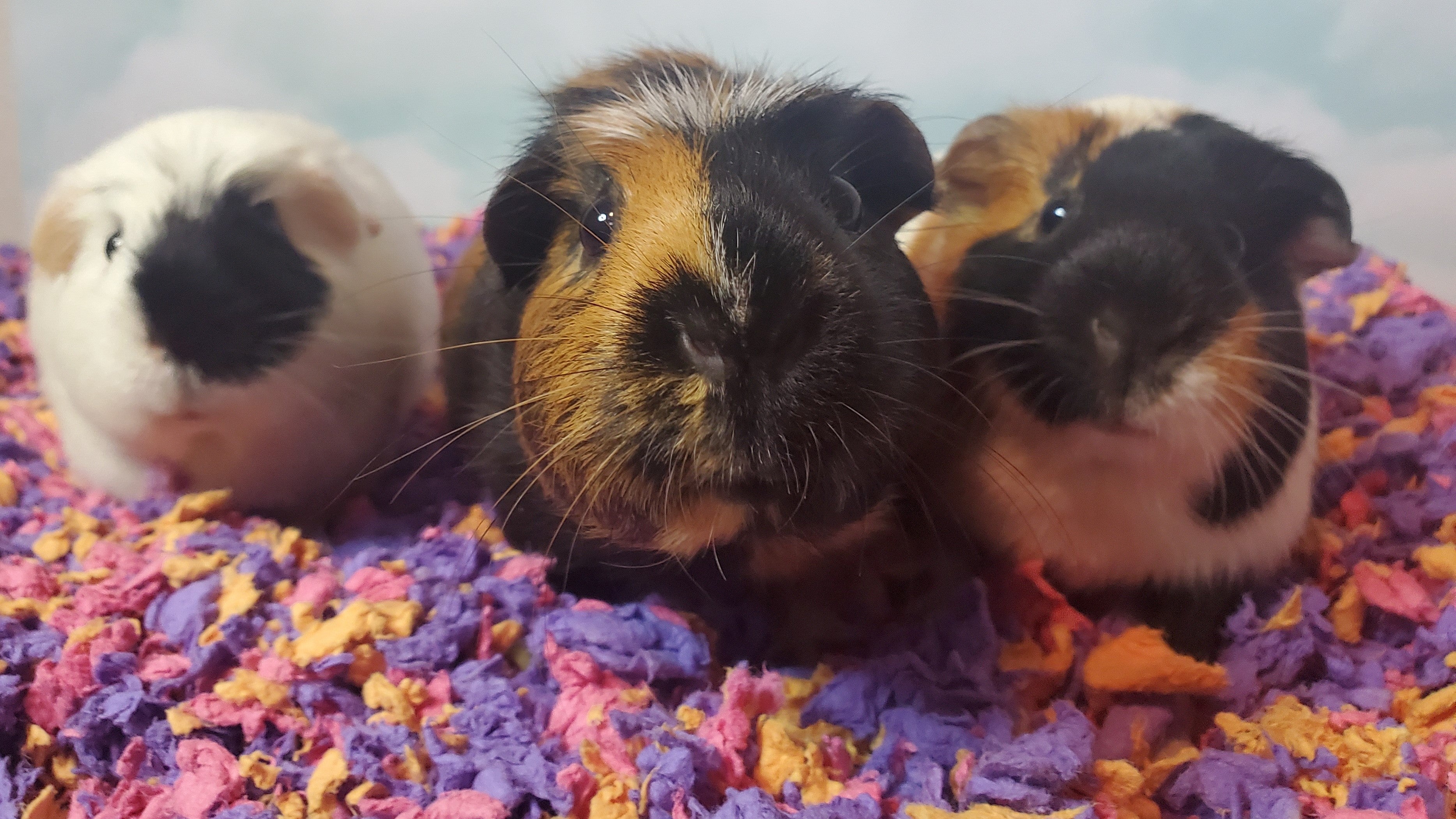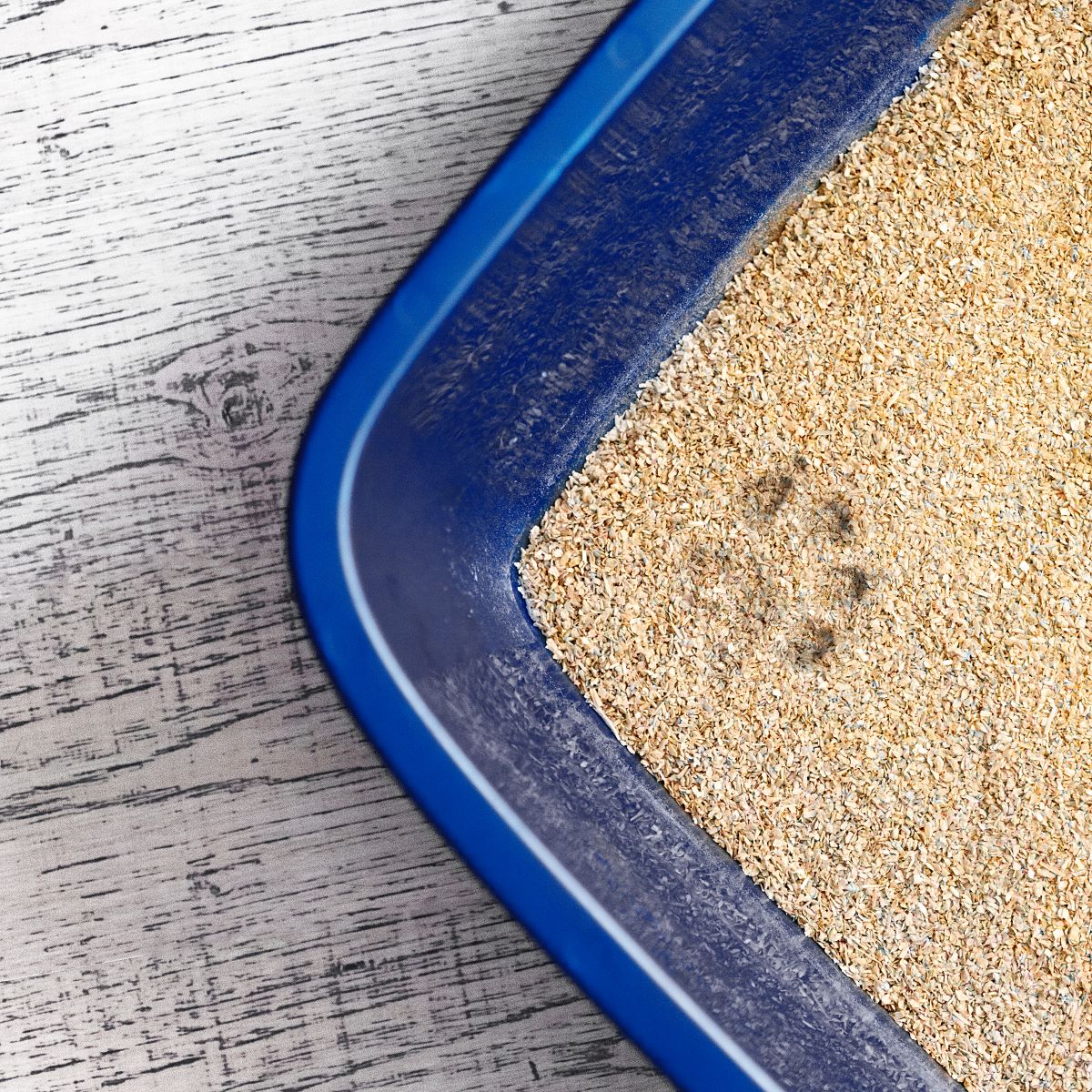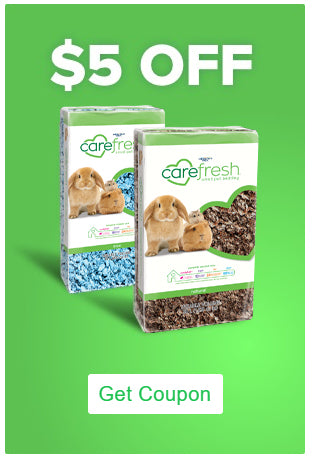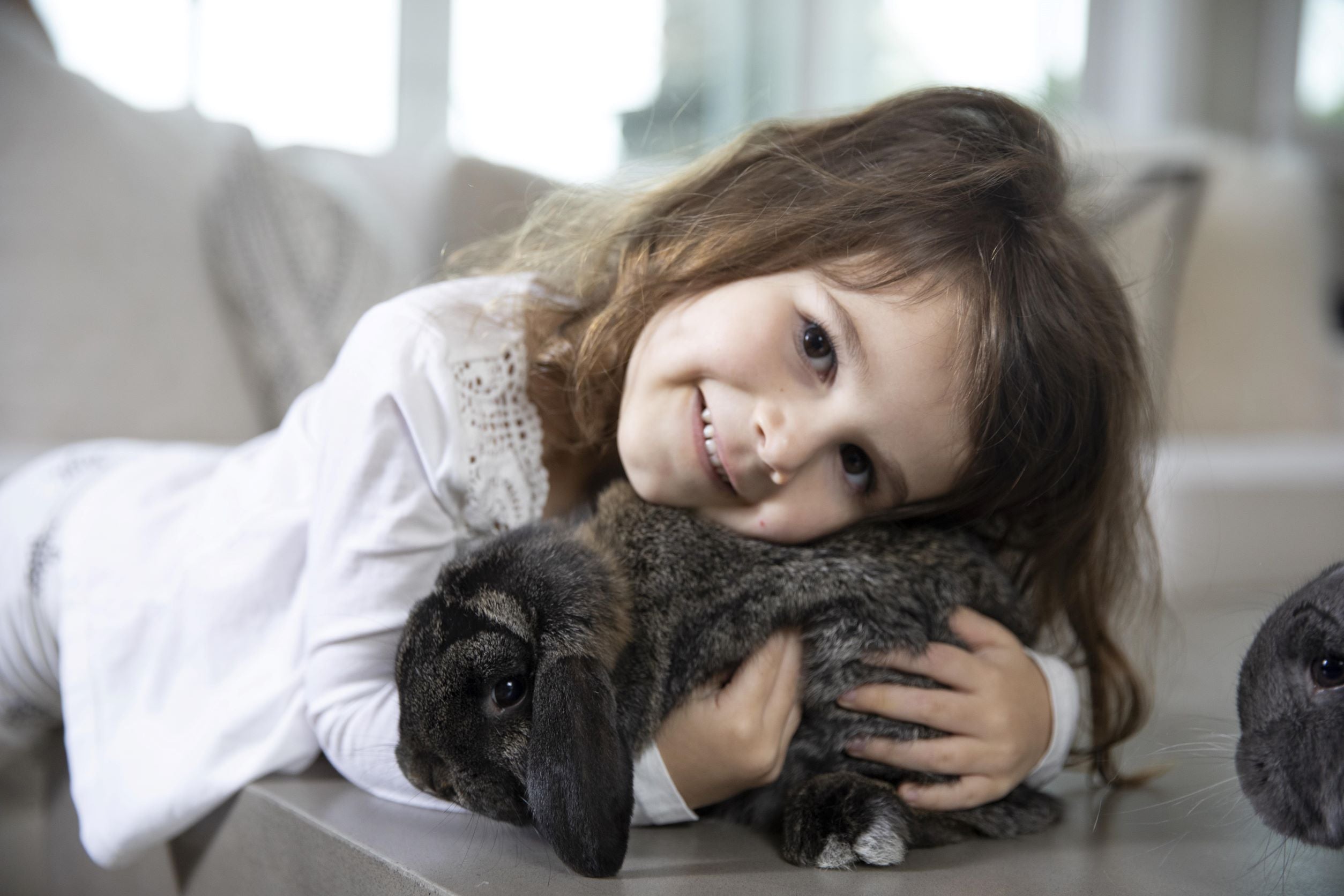
Best Tips for Adopting a Pet Guinea Pig
Guinea Pigs are super sweet and social and can be fun, wonderful pets to add to your family. They generally enjoy people and other guinea pigs but are also independent and easy going, while also being curious and inquisitive. They are very social so they should have a companion guinea pig at all times. Here are a few tips to think about before deciding to bring a guinea pig home:
What to consider:
- Guinea Pigs can live between 4 and 8 years, some even older. This is a longer life expectancy than other small pets such as gerbils or hamsters that only live 1-2 years, so be sure you are committed to care for them that long.
- They need a companion so be prepared to adopt at least two. It is best to adopt the same gender only, however some males will fight.
- Do you have enough space to provide a large habitat for them?
- Please adopt responsibly. There are usually plenty of guinea pigs available at your local humane society or an animal rescue.
- Make sure they are spayed so they cannot reproduce and have them checked by a Vet for any healthy issues if possible.
Guinea Pig Diet:
- Fresh water must be provided at all times. Use a water bottle or a water dish that does not tip over easily. Two sources is best.
- Guinea pigs are herbivores meaning they only eat plant material. Fresh greens and vegetables are an essential part of a guinea pigs diet, especially as a source of Vitamin C, which they cannot make on their own.
- Fruit can be given but in moderation, no more than once or twice a week
- Hay MUST be available at all times. Grass hay, preferably Timothy Hay, provides the fiber guinea pigs need for digestion and helps grind their constantly growing teeth. They should be eating a pile of hay that is about twice the size of their body each day.
- A pellet based food especially formulated for guinea pigs should be given every day. Make sure it does not have "fillers" like nuts, seeds, etc.
- Vitamin C is very important for their overall health. Guinea pigs are unable to make or store their own vitamin C so the best way to make sure they receive their daily vitamins is with a delicious offering of vitamin-rich vegetables. Red and green peppers, rosehips, parsley, kale and other dark leafy greens are all excellent sources of vitamin C. Read more
- Treats can be given in moderation, just make sure they do not have added sugar or fattening ingredients like nuts and seeds. NO chocolate, it poisonous for guinea pigs.
Their Habitat Needs:
- Make sure their home is large enough to move around and get enough exercise, with appropriate hidey spots and enrichment like chewy toys.
- We like the Midwest habitats (pictured below) that are both expandable and easy to clean. Total size depends on number of guinea pigs kept together but should be at least 10.5 sq ft for two.
- Place the habitat in an area that is free of drafts and stays between 65 and 75 degrees Fahrenheit.
- Keep in mind that guinea pigs can be most active at night so be sure to place in an area where they won't disturb your sleep.
- Use a super absorbent bedding like carefresh for the bottom as guinea pigs like to poop and pee a lot! Spot cleaning every day is best, with a total refresh once a week.
- Guinea pigs should also have access to additional space or play yard a few times a day for exercise. A pet playpen works great for this.
Other Supplies:
- Your guinea pig will need some fun things to do to keep them entertained safely.
- There are lots of safe toys at pet supply stores. Always ensure they are meant for guinea pigs and don’t contain any toxic ingredients or hazardous materials that could be dangerous for the pig to chew on or ingest.
- Guinea Pig’s teeth grow constantly. They need to chew a lot to keep their teeth in proper condition. If their teeth grow too long or crooked, it can impact their health and their ability to properly ingest food.
- Safe guinea pig chewable toys include wood, apple sticks and some fibers. Be sure to only give your guinea pig items that are safe. Sticking with items from pet supply stores is the best way to ensure your pig’s safety.
Here is a basic list of supplies that you will need to get and setup before bringing your new pet guinea pig home.
- Large Habitat & play yard – safe and secure and big enough for them to move around and get exercise
- Water Bottle or bowl – most guinea pigs will drink out of a water bottle with spout. Two sources.
- Hay feeder – Some guinea pigs enjoy pulling the hay out of the hay feeder and it can help to keep the hay sanitary. Some guinea pigs will pull all the hay out and it will just end up on the floor of the enclosure.
- Heavy Food Bowl – Check that it is shallow enough for your guinea pig to dip their face into
- Hay & pellet food, greens, vegetables, source of Vitamin C
- Enrichment/Chew Toys – apple sticks, woven fiber, wooden chew toys are all great options
- Igloo or Hidey Hut – Make sure it is big enough for your pig to turn around in. If you are adopting a young pig, they may grow, and you may end up needing a bigger hidey hut.
- Grooming – Small guinea pig nail trimmers, brush
*Note – if you are adopting a long-haired guinea pig, consult your veterinarian regarding grooming needs as some long-haired varieties need regular bathing, brushing and grooming to stay healthy.
Bedding:
- carefresh natural paper bedding is a great option and is safe, absorbent and easy to clean with little dust for them to breathe in. Plus there are lots of fun colors to choose from for a fun habitat theme.
- Since guinea pigs are herbivores, their bedding along with their poop is compostable! Learn how >>> Composting Tips
- Do not use wood shavings of any kind as these can emit odors and dust that can be harmful for your guinea pig’s respiratory system.
Socializing
- Some guinea pigs enjoy being cuddled or snuggled. Others prefer to be left alone. Since they are prey animals, they naturally try to avoid being picked up. Getting down on the floor with them with regular quiet contact and slow approaches with patting and gentle picking up over time will get them used to their owner and help them realize that they are safe. Still, some piggies will prefer to be left alone and that is ok. Learn more
- They may all sorts of fun and silly noises. Sometimes to communicate that they are hungry or excited to get a treat. Sometimes they chutter or make a clicking noise when they are unhappy or stressed.










 email us
email us